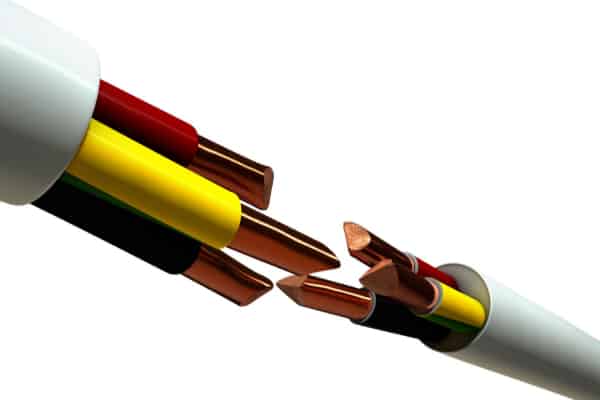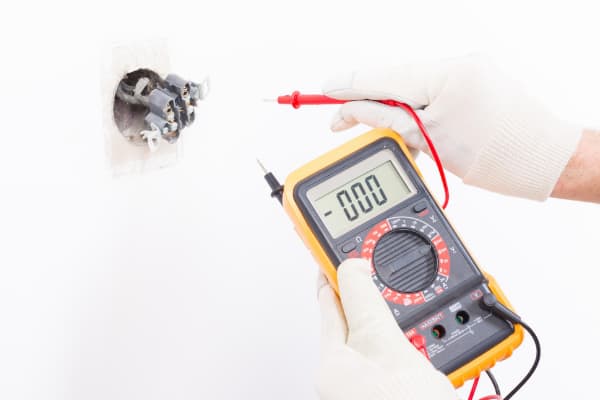Find My Local Expert What to do if You Find...
Read More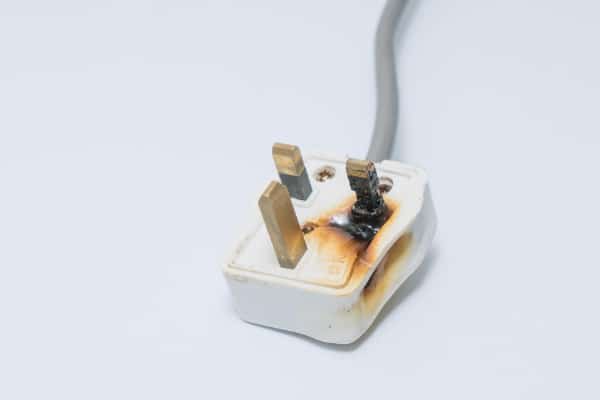
8 Signs You Need to Change Your Electric Sockets
Our homes and businesses are filled with electrical outlets. It is a matter of convenience to always have an electrical outlet free and nearby when you need one, but what happens when they are faulty?
The amount of electricity going through those outlets is enough to start fires, injure, and even kill, so it’s important that any issues with them are dealt with quickly and professionally. Of course, knowing that you have an issue with your electrical outlets is part of the battle.
To that end, we’ve put together a list of eight signs that you need to replace your electrical outlets. You don’t need to perform a thorough electrical inspection of your sockets on a daily basis, but knowing what to look out for will make it easier to spot a problem.
8 Signs it’s Time to Replace Your Outlets
Here are eight signs that your outlet needs replacing. Please remember that these are signs that the outlet is faulty. The amount of electricity travelling through these things is dangerous, and can even be fatal. If your outlets are showing any of the below signs, do not use them until you have had the problem dealt with!
#1 No Power
The most obvious sign that you might need to change your electric sockets is a total lack of power coming through them. Of course, there are plenty of other things that can cause a lack of power, so you’ll need to do a bit of electrical detective-work before fingering the outlet as the culprit.
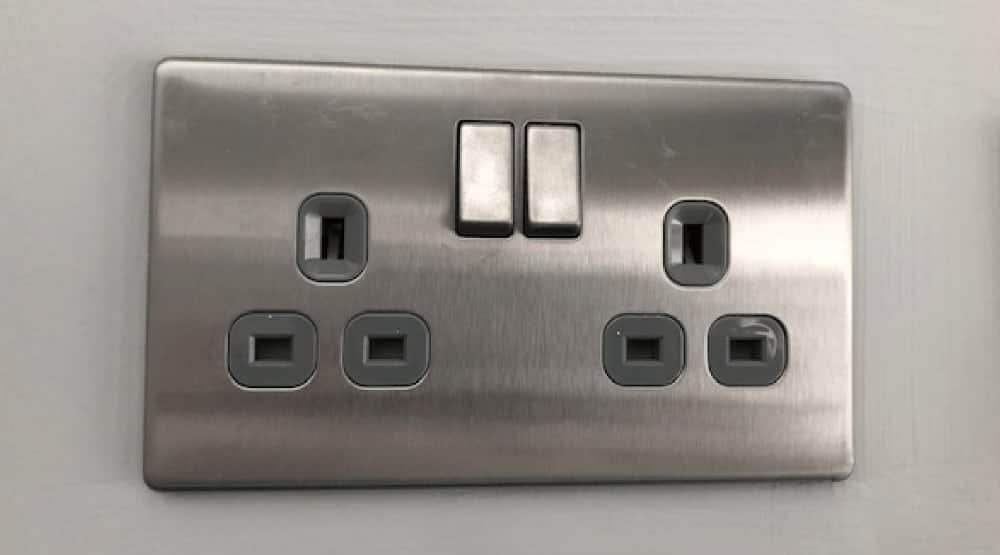
Firstly, make sure you have power in other outlets—a lack of power in multiple outlets would point to a problem with your fuse board. Next, try the appliance in other outlets to make sure that isn’t the problem. Finally, try an appliance you know works in the potentially faulty socket.
If you have power in other outlets, your appliance works in those outlets, and an appliance you know is fine doesn’t work in this outlet, you can be relatively confident that the outlet is the problem.
#2 Power Cutting Out Intermittently to Your Appliances
Similar to the above problem with no power, you could experience a situation where the appliances plugged into a particular outlet lose power intermittently. This will often coincide with movement of some kind, such as a vacuum cleaner randomly losing power during use.
Losing power in this way—and, crucially, regaining power without having to replace fuses or reset breakers—is a sign that there is something wrong with the connection in the outlet itself. As with above, your first task should be to verify that the problem is the outlet, and not your appliance. Take the appliance that was losing power and try it in other outlets. If it still loses power intermittently—and nothing else is behaving like this—then the appliance itself is the culprit. If, however, it behaves when you plug it into a different outlet, then your electrical socket is likely to blame.
#3 Fuses Blowing Repeatedly
Every appliance (assuming it meets UK regulatory standards) has its own fuse in the plug. This fuse is a safety measure to protect users from electric shock and to protect property from electrical fires in the event that something should go wrong.
The basic premise of a fuse is that it is rated for a particular amount of electricity, an amount that will correspond to what the appliance needs to work. If the amount of electricity being pulled through the fuse increases beyond that fuse’s rating, the fuse will blow, cutting the power to the appliance.
Given the speed that this happens, it should usually be enough to protect the user from electrical shock, as the fuse will blow the instant the electrical draw spikes.
Now, fuses do sometimes blow without a serious problem being the cause, and if your appliance blows a fuse, you replace it, and it works fine for years after, there was probably nothing to worry about. But, if your appliance goes through fuses on a regular basis, there is a problem.
As with above, the first course of action is to make sure it is the outlet and not the appliance that is causing the issue. Try running the appliance from a different socket for a while—if it keeps going through fuses, the appliance is the problem. But, if it is fine in other sockets, then the original socket is likely to be the culprit. If you want to be sure, you could try a different appliance in the faulty socket to see if it also starts blowing fuses, though we would recommend using an appliance that is not sensitive to electrical fluctuations. In other words, use a lamp, not your laptop!
#4 Signs of Visible Damage to the Outlet
The job of an electrical outlet is essentially to provide a safe interface between your electrical supply and your appliances, allowing you to connect and disconnect electrical items to your power supply safely. This is necessary because, without that protection, you would be in a precarious situation as the high levels of electricity would be exposed when you connect your appliances. Your electrical outlets protect you from all of that, keeping the dangerous parts of the mechanism hidden away, out of the reach of all but the most determined humans.
Naturally, if there is damage to the outlet, there is a problem.
Damage can come in a number of forms, such as cracks in the outer casing, loose wall plates that won’t tighten up, and even bits of the casing being broken off. If you spot any damage like this on your wall sockets, you need to get a professional in to replace it before somebody gets hurt.
#5 Plugs Fall Out of Your Electric Sockets
When you plug an appliance into an electrical socket, it is held in place by the tension of the socket’s contacts pushing against the prongs of the plug. If your plug is loose or falling out, that means that the tension of those contacts is failing.
Beyond being a nuisance, this can also lead to electrical problems, since the contacts are the things holding it in place. If they are failing to hold the plug in place, they are probably failing to make a stable electrical circuit with the plug, which can lead to blown fuses, tripped breakers, and even arcing, which introduces the risk of electrical fires.
There is also the possibility of injury, since a plug that is hanging out of its socket could potentially still be making an electrical connection while exposing the metal prongs that are conveying that electricity. You certainly want to deal with this problem if you have small children or animals in the house!
#6 Noises Coming From the Outlet
Electrical wiring and connections in your home should never make noise. If you are hearing noises coming from your outlet, it is a sign that something is amiss. The most likely culprit is a poor contact that is causing electricity to arc from one place to another. Regardless of what it is, however, noises are never a good thing.
#7 Scorch Marks Around Your Electric Sockets
Similar to noises, there is no benign reason for there to be scorch marks on or around your socket. Again, it is probably poor contacts causing arcing, but if the problem is such that it can scorch the socket, it is serious enough that it could start a fire!
#8 Burning Smells
There’s not much to add to this one that we didn’t cover in numbers six and seven. Needless to say, not every problem with your socket will generate audible or visible symptoms. If you smell burning coming from your socket, get the experts in as soon as possible.
The Benefits of GFCI Outlets
GFCI (ground fault circuit interrupter) outlets are recommended across the board these days, but especially in areas where moisture is prevalent, such as kitchens.
These sockets are designed to prevent grounding faults that could potentially injure from occurring in the first place, and are installed in new builds in the appropriate areas by default.
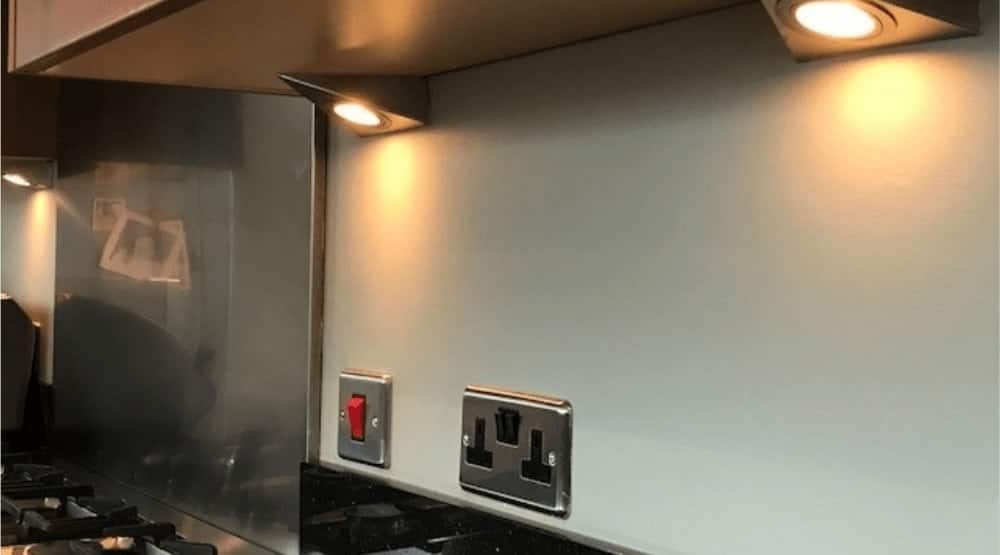
In essence, they work the same as a fuse or breaker—cutting the power when a potential ground fault occurs. They add a layer of safety to protect the user from electrical faults. And, if you have discovered a faulty outlet in your home and need to have it replaced anyway, there is very little reason not to replace it with a GFCI outlet.
Electricians Near Me
Electrical faults are no laughing matter, and they will not magically cure themselves. Like most problems in life, leaving a faulty electrical socket will only result in the problem getting worse eventually, and that will result in an increased risk of injury and property damage.
If you suspect you have faulty electric sockets, don’t waste time—call in the experts to get the problem taken care of. For a qualified and experienced electrician, replacing a socket is a relatively minor task, so it should cause minimal disruption to your life. A small price to pay for keeping you and your loved ones safe.
You May Also Like...
How to Replace a Pull Cord Switch
Find My Local Expert How to Replace a Pull Cord...
Read MoreHow to Prevent Your Circuit Breaker From Tripping
Find My Local Expert How to Prevent Your Circuit Breaker...
Read More7 Things You Can Do Before The Emergency Electrician Arrives
Find My Local Expert 7 Things You Can Do Before...
Read More5 Tips on Upgrading Your Home Office Electrics
Find My Local Expert 5 Tips on Upgrading Your Home...
Read MoreUpgrade to a GFCI Outlet Today!
My Trusted Expert Guarantee
Experts Have Been Vetted & Approved
